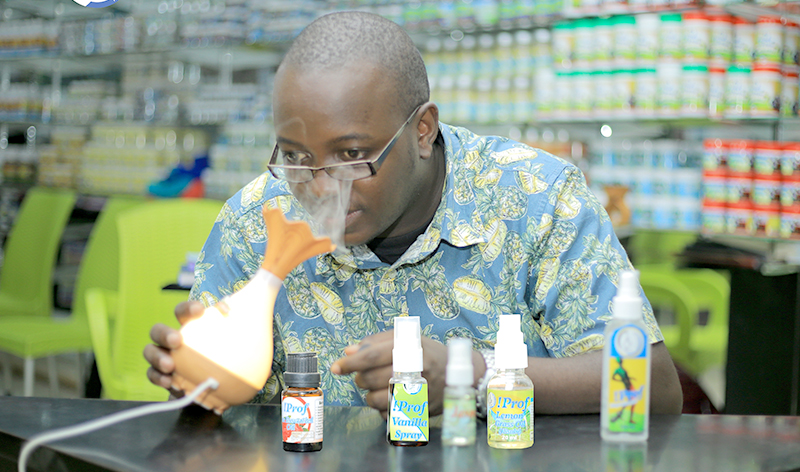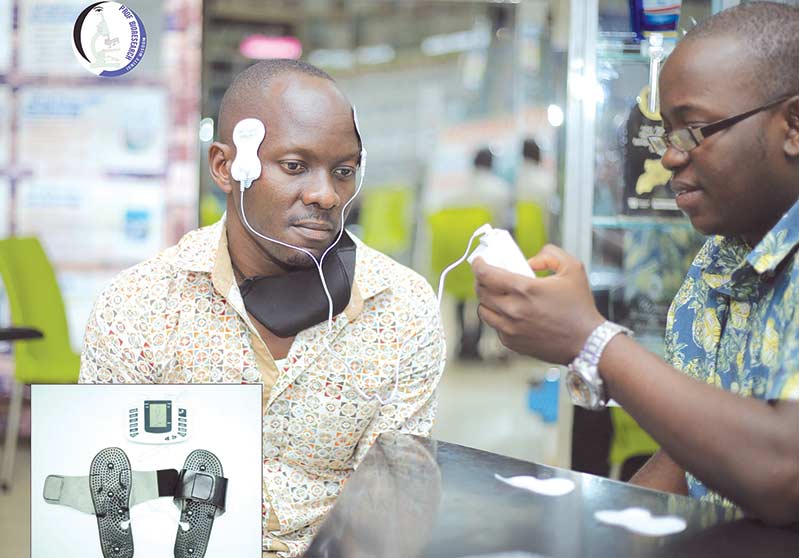Health
How close are you to getting depressed?
The World Health Organisation (WHO) defines depression as a mental health disorder characterized by persistent low mood or loss of interest in activities, causing significant impairment in daily life.
The global health body attributes depression to a wide range of causes ranging from biological, psychological and social sources of distress to the body as well as to the mind.
According to the WHO, Depression is a leading cause of disability, as well as being a major predisposing or risk factor for many of the common diseases we battle with these days such as cancer, heart diseases, backaches and even HIV/AIDS.
Depression usually starts from benign psychological conditions such as eating disorders, loneliness, or over exposure to dramatic news events such as media reports on wars, suppressed anger or simply anxiety. If left unchecked, seemingly innocuous conditions can advance into more serious mental disorders that are collectively diagnosed as depression.
When such conditions persist, they may not only grow into bigger mental health problems, they can also upset the chemical balance of your body.
You have probably experienced or heard of people who develop ulcers whenever they lose someone close to them or when they become too anxious about an event.
Scientists call these types of internal physical wounds as stress ulcers. Worrying more about the disease can drive someone to plunge deeper into anxiety and stress, hence develop depression which will trigger a vicious cycle of ill health.
Suicidal thoughts are often the most fatal and apparent sign of depression. However several other symptoms of depression present to different people.
Some of the commonest ones, according to the American Psychiatric Association, include; difficulty concentrating, anxiety, fatigue, sleep disturbances, appetite problems, irritability, mood swings and frequent outbursts.
Uganda among top 6 with depressive disorders
Findings by psychology researcher Amanda Miller and others in 2021, revealed that Uganda is one of the top six countries in Africa with depressive disorders. Majority of the victims of depression are young people aged 18 to 24 years.
The researchers further found that alcohol abuse, unemployment, poverty, high disease burden made worse by the general state of poor healthcare services conspire to pull many people into the abyss of depression.
From our experience of interacting with our clients and observations of social aspects of our population, we concur with Miller and others on the point that depression in Uganda is under-estimated.
We have observed that in Uganda, there is overuse of chemicals and pesticides, adversely affect our natural happiness hormones.
The heavy use of agricultural chemicals, coupled with alcohol abuse, rising prevalence of poverty, the increased consumption of processed food and social media content, has deepened the sense of anxiety and negativity especially among the young people.
Processed food is particularly dangerous because it contains monosodium glutamate, a food additive that is used to stimulate appetite. This pushes people to gain excessive weight, which not only makes them lose self-esteem, but also triggers an onset of other lifestyle diseases such as hypertension, cancer and likely triggers a sequel of poor health.
Heavy dependency on alcohol, coupled with the lack of adequate regulations on alcohol production and use in Uganda has proved a doubled edged sword when it comes to depression.
A 2014 study that was conducted by researchers Winfred Naamara and Wilson Muhwezi and focused on patients at Butabika National Mental Health Referral Hospital found a close correlation between alcohol abuse and mental health.
Another earlier study discovered even more damning information that showed that alcohol abuse was a major risk factor for the transmission of HIV/AIDS.
Another 2011 study by Anette Agardh and others about the relationship between mental health and sexual behaviour, found a strong relationship between the two health problems.
Surprisingly, perhaps is that the majority of the patients come from rich families or relatively comfortable backgrounds.
Some of the patients at Butabika are children of ministers, top executives of banks as well as children from Uganda’s elite class. This is neither something to celebrate about or to say that the poor are immune to mental health. It is rather to remind us that mental health knows no social status.
Despite its enormous impact on the lives of millions of the people around the world, the physical and mental health challenges that lead to depression are least studied and monitored especially in poor countries such as Uganda.
Fortunately the WHO and other health bodies say that depression is treatable.
Unfortunately still, because of the low levels of awareness about mental health in the country, coupled with limited investment by the government to promote mental health, most Ugandans are more likely to confuse the disease with other health conditions.
For example, only one percent of the Ministry of Health’s2021 budget was allocated to Butabika National Mental Health Referral Hospital, according to Miller.
Solutions
Realising and admitting that one is suffering from depression is usually the most important step onto the road to successfully addressing the mental health.
Paying attention to issues surrounding mental health as a form of self education is another vital step to addressing one’s state of depression or helping those that might be suffering from depression.
That aside, there are other possible ways to tackling the challenge.
The use of antidepressants is a common remedy for treating depression in many western countries.
But our findings reveal that over-reliance on prescription drugs has become another epidemic that has caused perhaps as many deaths as they seek to address.
With the loss of many international stars such as Michael Jackson, Whitney Houston and many others to antidepressant medications, there is a lot of caution on the use of such drugs.
We advise people to use safer, nature based and less expensive remedies to address depression.
Sleep
Increasing the number of hours of sleep is an important factor in addressing depression.
When you don’t get enough sleep, your body does not get enough melatonin, but also does not get enough energy.
In trying to untangle the challenge of depression, some religious leaders have offered vital advice. Father Deogratious Kateregga Kiibi of Mpigi Catholic Diocese, for example, once observed that having adequate hours of sleep (not less than 6 consistent hours every day) is essential in allowing the fibres of the brain to reset and therefore send the correct instructions to the body.
Detoxing
Another way to address depression is to detox or reduce the level of toxins in one’s body so as to restore the PH level (chemical balance) of the blood.
The regular use of clean water, anti-oxidants such as charcoal, consumption of green vegetables, reduced consumption of alcohol and fasting are some of the other ways through which someone can detox.
At Prof. Bioresearch, we have invested time and money to research and develop a number of innovate products aiming at addressing depression.
Sonic music
Sonic sound or non-verbal music has been used time immemorial as a source of relaxation as opposed to verbal sound which triggers the adrenalin to produce energy and fatigue.
A compilation of non-verbal music is available at Prof. Bioresearch for people who want to use sound to lighten their mood.
Aroma Therapy
The science using scents and aromas to relax and calm the brain is another age-old technique.
When the aromas reach the brain, they stimulate the olfactory bulb which induces the production of happiness hormones.
Prof. Bioresearch is one of the first native Ugandan companies that have produced oils from natural plants for use as aromas.
From Jasmine, to Lavender, to eucalyptus and the diverse variety of mints, Prof. Bioresearch has become a household name in Ugandan hotels, Sauna and massage parlors that have patronized our brands to lighten the ambience of their businesses.
In addition to aromas, Prof. Bioresearch sells vaporizers that enable the oil to calm the ambience.
One such USB-powered vaporizer we dubbed as the Nebulizer which goes for UGX 100,000 a piece.
Magnesium oil
The use of magnesium oil, as an additive to tea or as an ointment, can boost the production of melatonin (happiness) hormones.
Biotuner
Among the growing stable of solutions for depression made available by Prof bioresearch is the bio tuner.
The bio tuner is a gadget that uses low power to improve blood circulation, reactivate the nervous system and thereby eliminate stress hormones.
When everything is said and done, it is always important to note that the ultimate healer is the Almighty God.
As David so clearly observed in the book of Psalms 23-24;, he said: “Even I walk through the dark valley of death and I shall not be afraid.”
Seeking God’s protection in the face of seemingly insurmountable difficulties as depression is a time tested remedy for all mental health challenges.
Comments




















